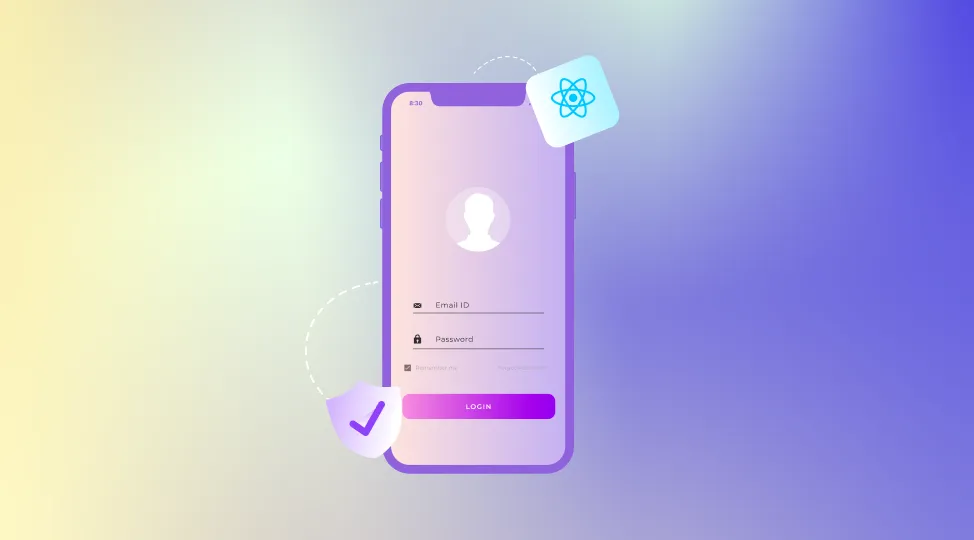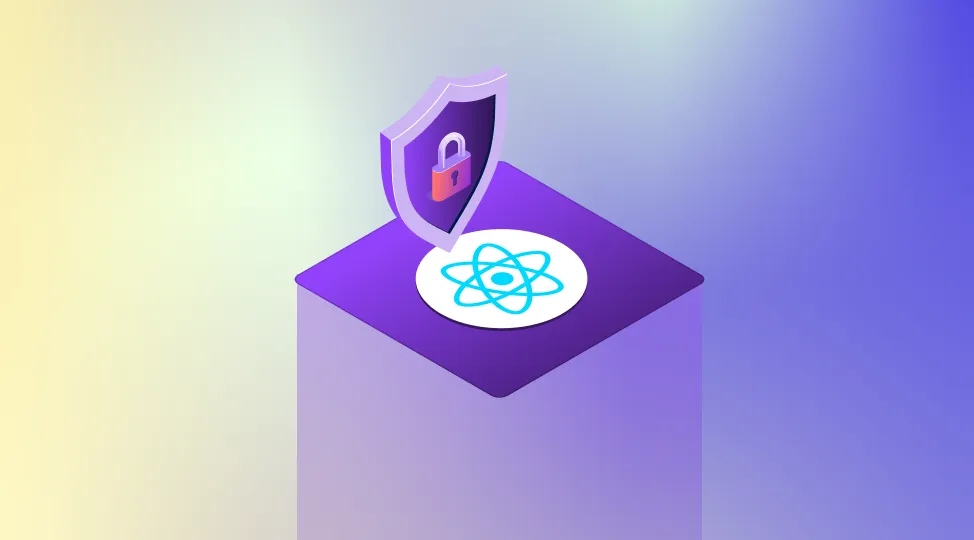Angular 18, the latest iteration of Google's popular front-end framework, has arrived. It has many exciting features and updates that promise to enhance developer productivity, improve application performance, and streamline the overall development experience. It was released on May 22, 2025, promising more web app development improvement.
At Quokka Labs, we're always eager to dig into the latest tech, so let's take a closer look at Angular 18 updates. Whether you're a seasoned Angular dev, just starting out in web development, or looking to use Angular in your project, this release has something to satisfy your appetite.
In this blog, we will explore Angular 18 features, improvements, and updates! Let's dive into the most notable advancements.
Highlights of Angular 18 updates and features:
- Introducing experimental support for zoneless change detection.
- The new hub for Angular developers - Angular.dev
- Material 3, deferrable views, and built-in control flow are now stable, featuring numerous enhancements.
- Server-side rendering has been improved with i18n hydration support, enhanced debugging, hydration support in Angular Material, and event replay powered by the same library used in Google Search.
Top Angular 18 Updates You May Have Missed!

1. TypeScript 5.4 Support
Angular 18 will fully support TypeScript 5.4, bringing a host of new features and improvements. Angular developers can now leverage the latest TypeScript features, including:
- Template Literal Types: Enable more precise type definitions for templates, allowing for earlier error detection.
- Improved readonly Support: Offer a more consistent and secure usage of the readonly keyword.
- New Import Types: Facilitate more modular and organized code.
Read more here: TypeScript 5.4 features!
2. Zoneless Application Development (Experimental)
Angular traditionally relied on Zone.js to track asynchronous operations and trigger change detection. Angular 18 introduces experimental support for zoneless applications, which can lead to better performance and less bundle size in some scenarios. While still experimental, this represents a potential paradigm shift in Angular development.
bootstrapApplication(App, {
providers: [
provideExperimentalZonelessChangeDetection()
]
});
Benefits of Zoneless
- Improved composability for micro-frontends and interoperability with other frameworks
- Faster initial render and runtime
- Smaller bundle sizes and faster page loads
- More readable stack traces
- Simpler debugging
3. Route Redirects with Functions
This Angular 18 updates now allows you to define route redirects using functions instead of static strings. This added flexibility enables you to create dynamic redirects based on conditions, user roles, or other runtime factors.
const routes: Routes = [
{
path: 'old-path',
redirectTo: () => {
if (isLoggedIn()) {
return '/dashboard';
} else {
return '/login';
}
}
}
];
4. Improved Performance with Ivy
This Angular 18 features will enhance application performance through optimizations to the Ivy compiler, leading to:
- Faster startup times
- Smaller bundle sizes
- Better overall performance
5. New ng-template API
Angular 18 updates will introduce a new ng-template API, making creating and using templates easier. The new API will offer:
- More flexibility and power
- The ability to create reusable and maintainable templates
6. Enhanced Forms API
Angular 18 features have several enhancements to the forms API, simplifying the creation and validation of forms while providing greater control over the validation process:
7. Firebase App Hosting
In Angular 18 updates, Firebase App Hosting has been introduced, revolutionizing the deployment of dynamic Angular applications. This service simplifies the complexities of hybrid rendering, including server-side rendering, pre-rendering, and client-side rendering.
Announced at Google I/O, Firebase App Hosting integrates seamlessly with Angular frameworks and offers GitHub support, making deployment effortless. Additionally, its integration with other Firebase products like Authentication, Cloud Firestore, and Vertex AI enhances its functionality.
8. The New Input Function
The new input syntax simplifies data passing into components, enhancing code readability and maintainability. Among Angular 18 updates, it's a new feature for improved functions!
Here's an example.
Import { Component, Input } from ‘@angular/core’;
@Component({
selector: 'app-product-details',
template: `
<div>
<ejs-textbox [(ngModel)]="productName"></ejs-textbox>
<ejs-textbox [(ngModel)]="productCategory"></ejs-textbox>
<ejs-textbox [(ngModel)]="productPrice" type="number"></ejs-textbox>
</div>
`
})
export class ProductDetailsComponent {
productName = Input<string>(); // Signal<string|undefined>
productCategory = Input.required<string>(); // Signal<string>
productPrice = Input(0); // Signal<number>
}
9. The New Output Function
Among Angular 18 updates, it's a new feature. The new output syntax streamlines event handling, making it more intuitive and easier to understand. As Angular continues to enhance the Signal API based on user input, it is poised to become a cornerstone for developing powerful and efficient web applications.
import { Output, Directive } from '@angular/core';
@Directive({
selector: '[appCustomDirective]',
})
export class CustomDirective {
nameUpdated = new Output(); // OutputEmitterRef<string>
buttonClicked = new Output(); // OutputEmitterRef<void>
updateName(newName: string): void {
this.nameUpdated.emit(newName);
}
handleClick(): void {
this.buttonClicked.emit();
}
}
10. Improved Debugging Tools
Angular 18 features offer several improvements to debugging tools, making it easier to debug applications and providing more insights into the application state:
- Debugging with source maps
- Visualizing the component tree and data bindings
- Performance profiles
11. Standalone Components
Angular 18 updates introduce Standalone Components, allowing you to build components without using Angular Modules. It simplifies project structure, reduces boilerplate, and enables better tree-shaking for smaller bundle sizes.
@Component({
standalone: true,
selector: 'app-standalone',
template: '...'
})
export class StandaloneComponent {
// ...
}
12. Stricter Type-Checking
This Angular 18 features improve type-checking within templates, providing earlier feedback on potential type errors during development. It leads to more robust applications and easier debugging.
13. Hydration Support in CDK and Material
Both Angular CDK (Component Dev Kit) and Angular Material now support hydration in SSR. This ensures smoother transitions between server-rendered and client-rendered content, improving user experience.
14. Unified Control State Change Events
Angular Forms now emit a unified stateChange event, simplifying the handling of form control value changes, status updates, and validation state changes.
15. Coalescing by Default
Change detection cycles are now coalesced by default in zoneless and Zone.js-based applications. This optimization reduces the number of change detection runs, improving performance, especially in scenarios with frequent updates.
Other New Updates to the Angular Core Project
Router
Compiler
- Requires TypeScript 5.4 or newer; older versions are no longer supported.
Core
-
OnPush views at the application root require manual dirty marking for host binding updates.
-
ComponentFixture.autoDetect won't refresh the host view for OnPush components unless marked dirty.
-
Event delegation libraries can queue and replay events when the application is ready.
Platform-browser-dynamic
- Removal of RESOURCE_CACHE_PROVIDER APIs.
Platform-server
Angular Package Format (APF)
HttpClient:
- The deprecated XhrFactory export from @angular/common/http is removed. Use the one from @angular/common.
How to Install Angular 18?
To install Angular 18, you have to use npm. It's a Node package manager. It is inside angular tools.
To install Angular 18, execute this command.
npm install --global @angular/cli@next
and done!
Final Snippets | Angular 18 = Improved Web Developement
As you can see, Angular 18 isn't just an update; it's a culinary masterpiece for web developers. With its performance enhancements, streamlined development tools, and exciting new features, it's clear that Angular continues to be a top choice for web app development, building robust web apps.
At Quokka Labs, we're passionate about leveraging cutting-edge technologies like Angular 18 to deliver exceptional web development services and craft high-performing web development solutions for our clients.
Suppose you're looking to harness the power of Angular 18 or need expert guidance for your next web project. In that case, you can Hire AngularJS Developer, as our team of experienced developers is ready to collaborate.
Let's create something unique together. Contact us today!

FAQs
Is it worth upgrading to Angular 18?
Definitely! Angular 18 brings numerous benefits, including performance enhancements, simplified development patterns, and improved developer tools. These improvements can make your Angular projects more efficient, easier to maintain, and deliver a better user experience.
What is the most significant change in Angular 18?
The introduction of experimental support for zoneless change detection is a significant shift. It has the potential to meaningfully improve performance and streamline development by eliminating the need for Zone.js. However, it's still experimental, so use it cautiously in production applications.
How can I get started with Angular 18?
The easiest way is to use the Angular update guide . It provides detailed instructions on upgrading your existing Angular projects to the latest version.
What are some best practices for optimizing Angular 18 performance?
Some key optimizations include:
- Using the OnPush change detection strategy to minimize unnecessary change detection cycles.
- Utilizing lazy loading for modules to reduce initial load times.
- Employing Angular Universal for server-side rendering to improve SEO and perceived performance.
- Minifying and compressing your application bundle size.
Tags
Angular Update
angular web app development
angular 18
Angular Development
Web Development



 Facebook
Facebook
 Twitter
Twitter
 LinkedIn
LinkedIn
 Pinterest
Pinterest






